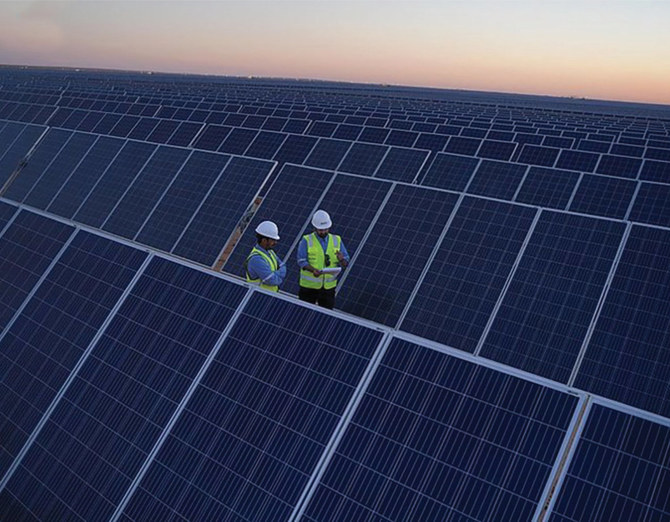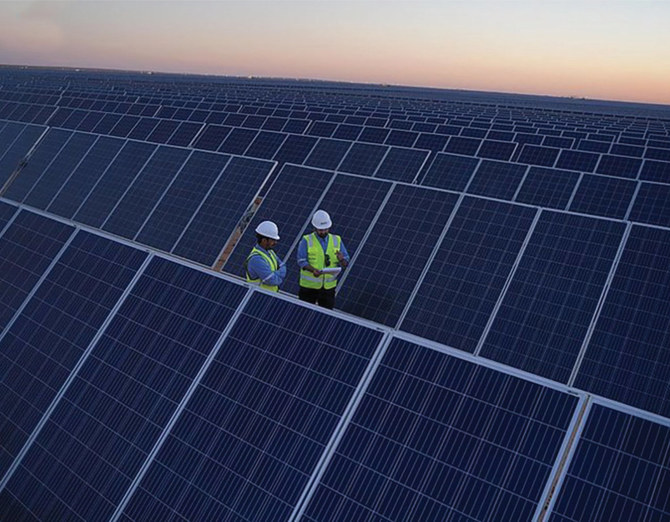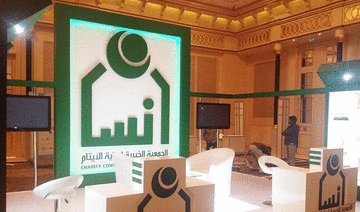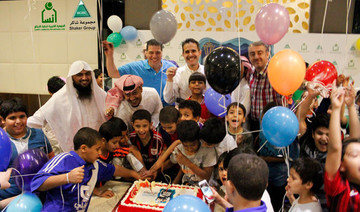RIYADH: Saudi Arabia is hosting Middle East and North Africa Climate Week (October 8-12), a conference that brings together experts and policymakers from the climate field and provides the Kingdom an opportunity to highlight its energy transition efforts.
Widely touted as one of the most significant events taking place ahead of the UN Climate Change Conference, or COP28, this November in Dubai, MENA Climate Week will allow officials, activists and scientists to discuss ways to mitigate the effects of global warming.
The Riyadh-hosted event, held in collaboration with the UN Framework Convention on Climate Change, will also offer Saudi Arabia a chance to show how it is leading the region’s green transition with programs like the Saudi Green Initiative and the adoption of renewables.
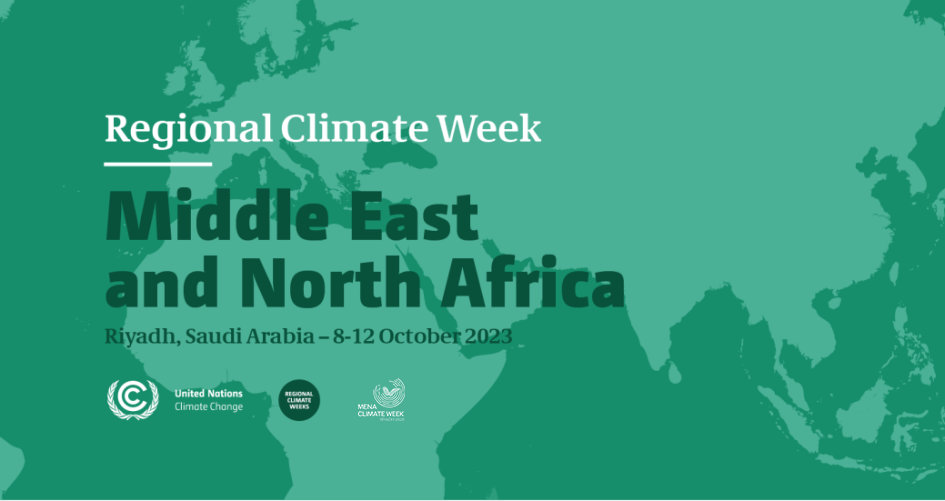
The UNFCCC is tasked with supporting the global response to the threat of climate change. The week will take place in collaboration with the UN Development Programme, UN Environment Programme, and the World Bank.
Partners based in the MENA region include the International Renewable Energy Agency, Islamic Development Bank, the League of Arab States secretariat, and the UN Economic and Social Commission for Western Asia.
Saudi Arabia’s Ministry of Energy said in a recent statement that MENA Climate Week will position Saudi Arabia at the forefront of the climate debate, allowing it to help set the narrative for COP28 and shape forthcoming negotiations on emissions targets.
MENA Climate Week will feature a packed agenda of regional and international events, meetings and exhibitions, along with several cultural activities.
FASTFACTS
The Middle East and North Africa Climate Week 2023 will be held in Riyadh, Saudi Arabia, on Oct. 8-12.
Regional climate weeks aim to inspire people to become part of the momentum created by the Paris Agreement.
They are a collaborative platform where governments and organizations come together to address climate issues.
During the week, Saudi Arabia will use key discussions to promote its circular carbon economy approach and to identify potential partnerships with organizations and countries to mitigate climate challenges.
A circular carbon economy is a closed loop system for managing and reducing emissions involving four “Rs”: reduce, reuse, recycle, and remove. Saudi Arabia and Aramco have adopted the framework as a way to reduce their carbon footprints.
“Our world needs to urgently transform to address the climate challenge,” the Ministry of Energy said in its statement. “Saudi Arabia and the MENA region are committed to exploring all approaches to reach the ambitions outlined in the Paris Agreement.”
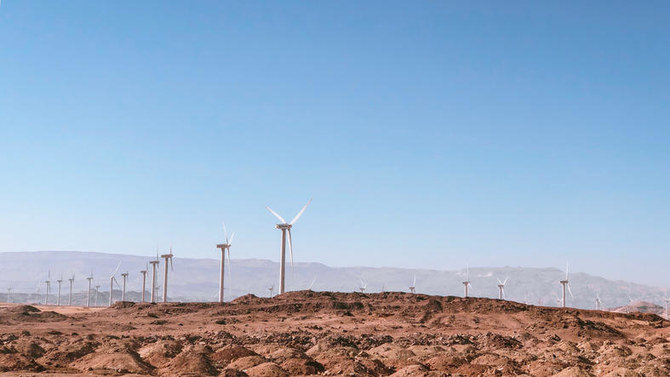
The World Economic Forum’s annual Energy Index Report revealed earlier this year that Saudi Arabia has advanced 24 ranks in the Energy Transition Index since 2021, thanks to SGI and the establishment of the Regional Voluntary Carbon Market by the Kingdom. (Supplied)
The Paris Agreement is an international treaty on climate change that was adopted in 2015 and compels signatories to work toward limiting global temperature increases to no more than 1.5 C above pre-industrial levels.
“Climate action must not leave any section of society behind. Finding solutions requires an inclusive approach, where all parts of society — including industry — have a role,” the ministry added.
The week will also showcase Saudi Arabia’s progress on reducing greenhouse gas emissions, and the different initiatives the Kingdom has adopted to achieve its net zero goals by 2060.
“The MENA region is blessed with some of the fastest growing economies in the world,” the ministry said. “Through innovative solutions, our development goals can be achieved while meeting the challenge of climate change.
“As the leading energy exporter in the region and an important investor in research and development, the Kingdom of Saudi Arabia, and the wider region, can provide potential paths to reduce environmental impacts.”

Saudi Arabia has positioned itself at the forefront of sustainability projects, launching the Saudi and Middle East Green initiatives. (AFP/File photo)
Indeed, the ministry says that climate action should not come at the cost of economic development and global energy security.
MENA Climate Week will focus on three main pillars: transformation, inclusion, and solutions.
The transformation pillar emphasizes the need to change the way societies live and work and how their economies function in order to mitigate climate risks. The Gulf states have already understood the necessity of change and are acting toward a greener future.
Inclusion means promoting cooperative approaches that leave nobody behind in this transformation — be they public, private, or civil society.
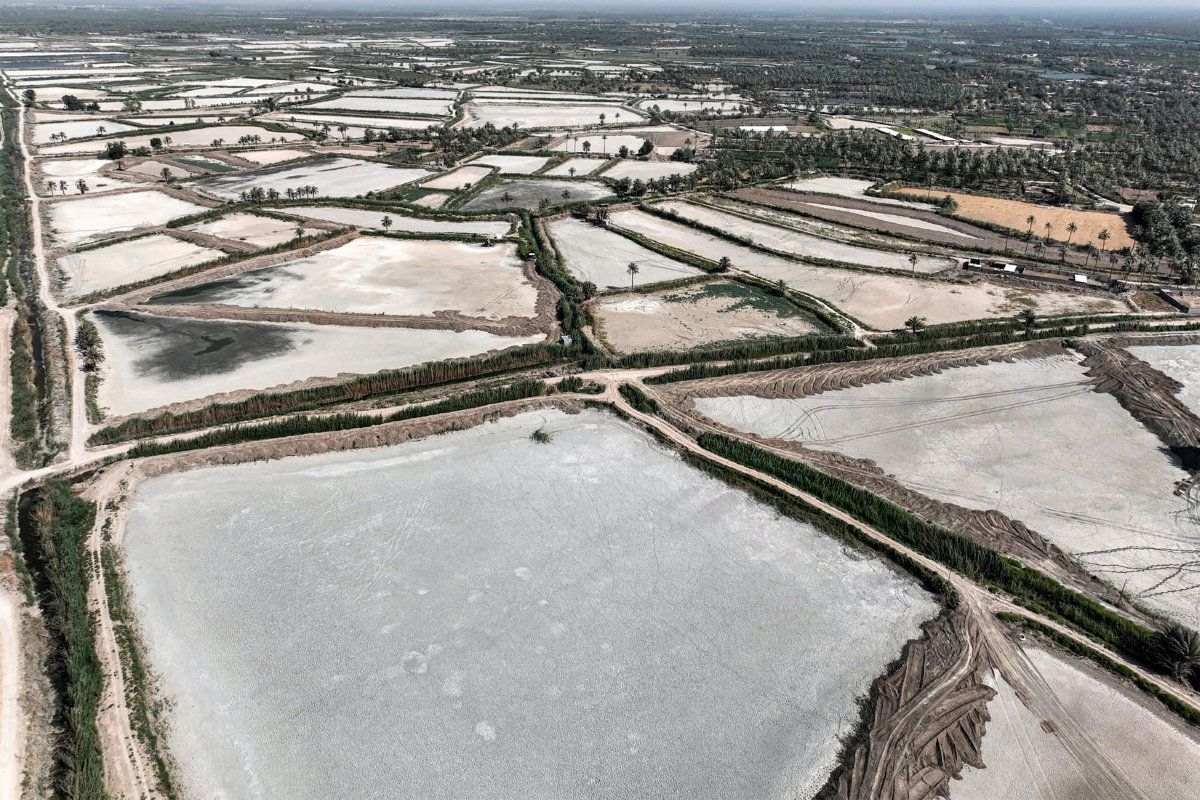
This aerial view shows dry fish farms in the village of Albu Mustafa in Hilla, about 100 km (62 miles) south of Baghdad, Iraq, on July 6, 2023, following a crackdown by the Iraqi government on unauthorized ponds in an effort to meet the country's water demands. (AFP)
The first day of MENA Climate Week will feature an opening ceremony, followed by a ministerial panel discussion under the theme “Advancing inclusivity and circularity for just and equitable energy transitions.”
Also on the first day, a second ministerial panel will handle the subject of “Inclusive finance and economic diversification toward the goals of the Paris Agreement,” while the third is titled “Towards a global goal on adaptation that adapts to a 1.5 degree world.”
One of the most important events taking place on the second day of MENA Climate Week is the League of Arab States Roundtable, which will discuss expectations of COP28.
Saudi Arabia has positioned itself at the forefront of sustainability projects, launching the Saudi and Middle East Green initiatives. The Saudi Green Initiative, or SGI, aims to reduce carbon emissions by 278 million tons annually by 2030.
Under SGI, Saudi Arabia will also plant 10 billion trees across the country in the coming decades and designate 30 percent of the country’s land and sea territories as protected areas by 2030.
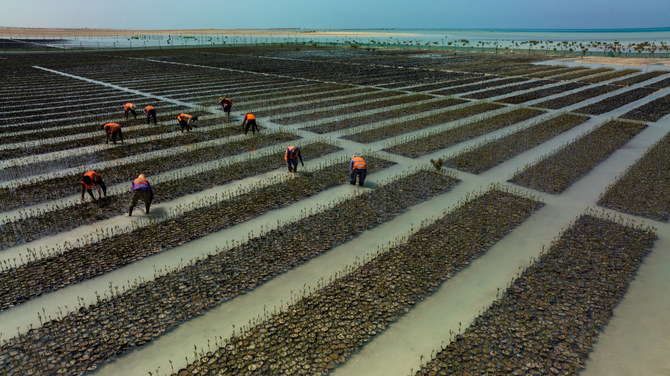
Saudi Arabia's Red Sea Global implemented a nursery project with the goal to have 50 million trees of Mangroves by 2030. (Red Sea Global photo)
Meanwhile, the wider Middle East Green Initiative focuses on eliminating 670 million tons of carbon dioxide equivalent and planting 50 billion trees across the region.
The Green Saudi Cities initiative, launched by the Municipal, Rural Affairs, and Housing Ministry, aims to plant up to 32 million trees in public parks and gardens across the capital Riyadh.
The scheme will be conducted over three phases and will undertake new greening projects in Riyadh, equivalent to an area of 437.5 sq. km. The project is set to be completed by 2031.
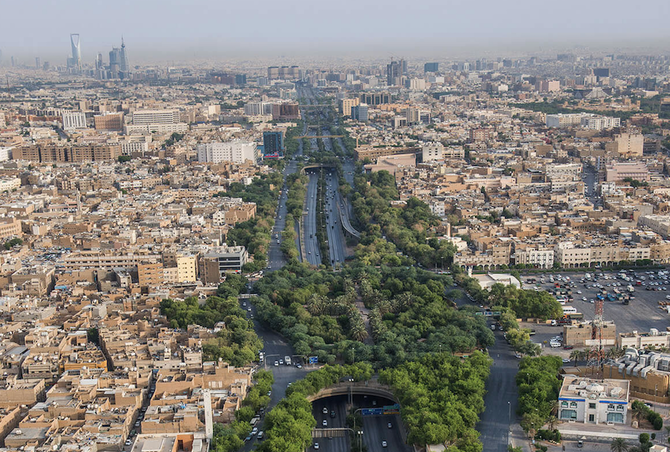
As planned, close to a tenth of the Saudi capital city would be green by 2030. (File photo)
The capital is also undergoing a massive overhaul as the Green Riyadh project sets out to increase the proportion of green space to 9 percent and to plant 7.5 million trees by 2030.
At the heart of it all, work is underway to establish the King Salman Park, the largest urban park project in the world, in which 11 sq. km of its planned 16.6 sq. km park will be covered in green spaces and more than a million trees.
The third edition of the SGI forum will take place on Dec. 4 during COP28 and will bring together influential figures, thought leaders, and climate experts who will share their insights and suggestions for tackling climate challenges effectively.
Earlier in July, the World Economic Forum’s annual Energy Index Report revealed that Saudi Arabia has advanced 24 ranks in the Energy Transition Index since 2021, thanks to SGI and the establishment of the Regional Voluntary Carbon Market by the Kingdom.



